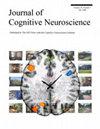内隐适应受反馈相关性的调节
IF 3.1
3区 医学
Q2 NEUROSCIENCES
引用次数: 0
摘要
鉴于现实世界中信息性和相关性反馈往往与干扰性和无关性反馈交织在一起,我们提出了视觉反馈的相关性如何影响内隐感觉运动适应的问题。为了解决这个问题,我们在中心向外伸手任务中呈现了多个光标作为视觉反馈,并改变了这些光标的任务相关性。换句话说,我们要求参与者用与任务相关的特定光标击中目标,而忽略其他光标。在实验 1 中,我们发现与对单个任务相关光标的触及后效相比,仅仅存在干扰光标就会削弱触及后效。衰减程度与干扰光标的位置无关。在实验 2 中,我们考察了任务相关性和注意力之间的相互作用。我们要求被试适应与任务相关的光标/目标对,同时忽略与任务无关的光标/目标对。重要的是,我们以不相关的方式抖动了相关目标和不相关目标的位置,这样我们就可以通过参与者追踪目标位置的程度来确定注意力。我们发现,追踪任务相关目标/光标对的能力更强的参与者表现出更大的后效应,有趣的是,同样的相关性也适用于任务无关目标/光标对。总之,这些结果凸显了任务相关性在调节内隐适应方面的新作用,或许是通过对信息反馈源给予更多关注,增加了感官预测错误的显著性。本文章由计算机程序翻译,如有差异,请以英文原文为准。
Implicit Adaptation Is Modulated by the Relevance of Feedback
Given that informative and relevant feedback in the real world is often intertwined with distracting and irrelevant feedback, we asked how the relevancy of visual feedback impacts implicit sensorimotor adaptation. To tackle this question, we presented multiple cursors as visual feedback in a center-out reaching task and varied the task relevance of these cursors. In other words, participants were instructed to hit a target with a specific task-relevant cursor, while ignoring the other cursors. In Experiment 1, we found that reach aftereffects were attenuated by the mere presence of distracting cursors, compared with reach aftereffects in response to a single task-relevant cursor. The degree of attenuation did not depend on the position of the distracting cursors. In Experiment 2, we examined the interaction between task relevance and attention. Participants were asked to adapt to a task-relevant cursor/target pair, while ignoring the task-irrelevant cursor/target pair. Critically, we jittered the location of the relevant and irrelevant target in an uncorrelated manner, allowing us to index attention via how well participants tracked the position of target. We found that participants who were better at tracking the task-relevant target/cursor pair showed greater aftereffects, and interestingly, the same correlation applied to the task-irrelevant target/cursor pair. Together, these results highlight a novel role of task relevancy on modulating implicit adaptation, perhaps by giving greater attention to informative sources of feedback, increasing the saliency of the sensory prediction error.
求助全文
通过发布文献求助,成功后即可免费获取论文全文。
去求助
来源期刊
CiteScore
5.30
自引率
3.10%
发文量
151
审稿时长
3-8 weeks
期刊介绍:
Journal of Cognitive Neuroscience investigates brain–behavior interaction and promotes lively interchange among the mind sciences.

 求助内容:
求助内容: 应助结果提醒方式:
应助结果提醒方式:


